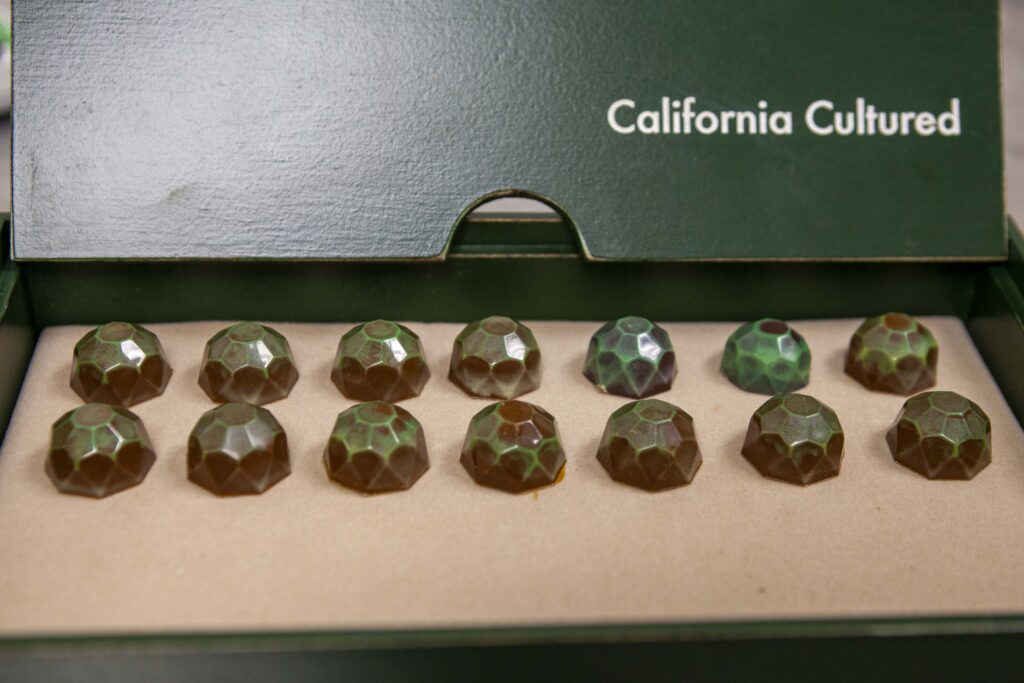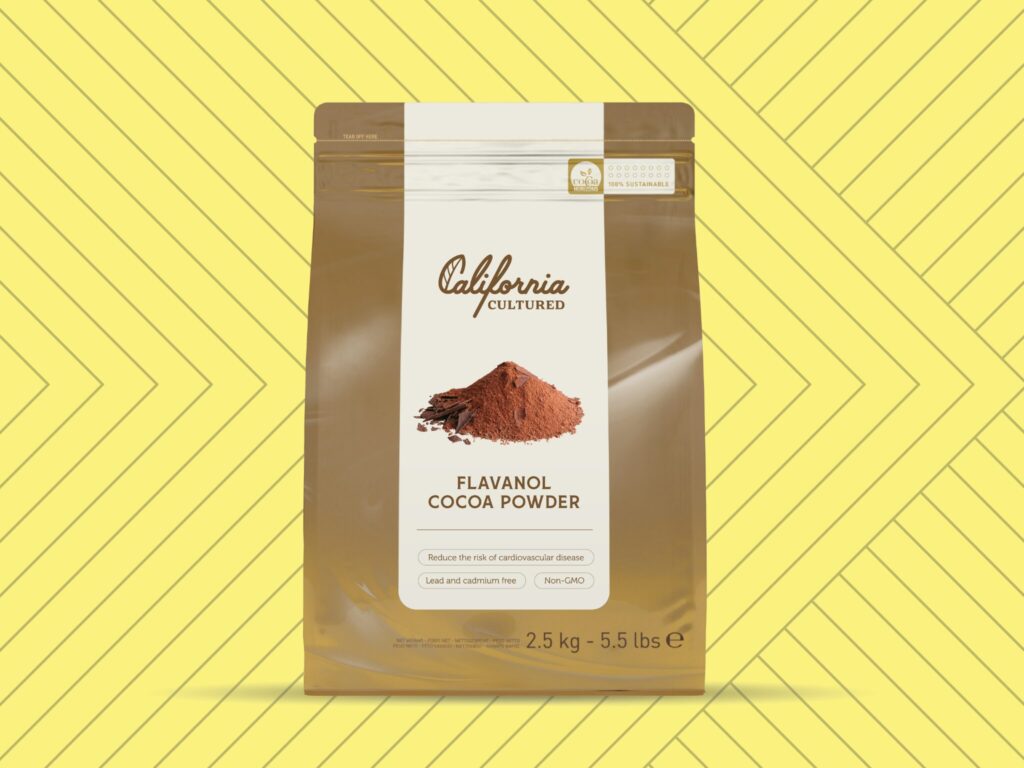California Cultured Joins Forces with Japanese Chocolate Giant Meiji for Cell-Based Cocoa Products
5 Mins Read
US startup California Cultured will see its cell-based cocoa incorporated in products by Japanese chocolate giant Meiji, with a 10-year commercial partnership for the former’s Flavanol Cocoa Powder.
West Sacramento-based food tech company California Cultured has linked up with Meiji, Japan’s largest chocolate company, which will see the startup’s cell-cultured cocoa products appear in packaged goods by the latter.
The partnership is headlined by a 10-year-long deal for the supply of California Cultured’s Flavanol Cocoa Powder to Meiji as part of a co-branded collaboration. “There is a progressively growing supply gap in the cocoa industry. This is the beginning of the future of chocolate,” said California Cultured founder and CEO Alan Perlstein. “It marks the first time cell-cultured chocolate will enter any market worldwide.”
Why California Cultured is making cell-based chocolate

Founded in 2020, California Cultured is one of the only producers (alongside Israel’s Celleste Bio and Finnish giant Fazer) working on cell-based chocolate. The company collects samples from a cocoa plant with ideal organoleptic properties and harvests its cells, which undergo growth in fermentation tanks that mimic the conditions of rainforests where cocoa thrives. Within three to four days, the cells are ready to be harvested, fermented and roasted.
“With our scalable technology, we’re positioned to excel and dominate in the field of plant-based cellular agriculture, where we pioneer the creation and cultivation of cells to redefine how we grow and produce innovative, sustainable products,” explained Perlstein. “Plant cell culture has a far smaller GHG footprint than other types of cell technologies.”
Speaking of footprints, that is a key reason why innovations like cell-cultured cocoa are key: dark chocolate is second only to beef when it comes to the top GHG-emitting foods. Meanwhile, cocoa beans have one of the highest carbon opportunity costs (the amount of carbon lost from native vegetation and soils to produce food).
And partly due to the widespread use of palm oil, the chocolate industry is also associated with mass deforestation – so much so that the EU banned imported cocoa and chocolate linked to deforestation in June last year. Additionally, scientists have warned that cocoa trees are threatened – and a third of them could die out by 2050 – which could lead to a global chocolate shortage.
The industry has been a blight on human rights too, with Indigenous communities losing their lands and workers exploited with poor conditions and pay. There are implications of child slavery as well, with the US government sued in August to block imports of cocoa harvested by children in West Africa, which has been used by the likes of Hershey’s, Mars and Nestlé.
California Cultured claims its process of developing sustainable cocoa in fermentation tanks is a climate-resilient approach to chocolate-making that addresses deforestation and labour exploitation in the industry. This is what sparked its collaboration with Meiji.
“Meiji came to us because unpredictable weather patterns – including heavy rainfall – have disrupted cacao cultivation, leading to a consecutive year of supply shortages,” California Cultured’s head of strategy Steve Stearns told Green Queen. “This scarcity has driven futures prices to unprecedented levels, reflecting the strain on supply and demand dynamics within the chocolate industry.”
Perlstein added: “We need to build a resilient, superior future for chocolate. This partnership is the first step in achieving this.”
Seeking regulatory approval for a targeted late 2024 launch

California Cultured, which raised $4M in a funding round in 2021, is targeting products in the nutraceutical, chocolate, and better-for-you snacks markets with the Meiji deal. “Meiji’s collaboration with California Cultured involves the seamless integration of the startup’s cocoa powder, cultivated from cells rather than traditional cocoa beans, into an array of confectionery and wellness products tailored for both the US and Japanese markets,” explained Stearns.
“This comprehensive product line encompasses chocolates, truffles, and wellness-enhancing chocolate products designed for consumer use,” he added. The company is building its manufacturing both internally and externally based on proprietary tech developed in-house.
In terms of price, Stearn revealed that the first products with Meiji will be “very competitive with high-value nutritional products on the market” in the aforementioned categories. “Gaining traction with customers like Meiji will help us bring down our operating costs rapidly,” he added. The company later plans to release chocolate callets as part of the Meiji collaboration too.
Cellular agriculture versus fermented plants
As a cellular agriculture company, it will also need approval from food safety regulators in the countries it plans to sell in. California Cultured has already begun the process to earn a GRAS (Generally Recognized as Safe) certification from the US FDA, and Stearn confirmed that the producers expect to release the Flavanol Cocoa Powder – a food that has been found to reduce the risk of major cardiovascular disease by 16% and cardiovascular deaths by 27% – in the country in late 2024.
There has been a deluge of activity in the sustainable chocolate space recently, with many companies focusing on alternatives to cocoa and chocolate – much like plant-based analogues to meat or dairy. These include Planet A Foods (ChoViva), Voyage Foods, Foreverland and WNWN Food Labs. “Alternative chocolate companies are using alternatives like shea butter and carob, which gives a waxy undesirable texture,” said Stearn. “During chocolate’s history, consumers have rejected carob chocolate on several occasions.”
He added: “California Cultured is producing real chocolate and cocoa, which gives us a distinct advantage in taste and texture. From a marketing perspective, these products can not be labelled chocolate, which can harm customer acceptance.”
It will be interesting to see how consumers perceive cell-based products like California Cultured’s cocoa flavanol.




